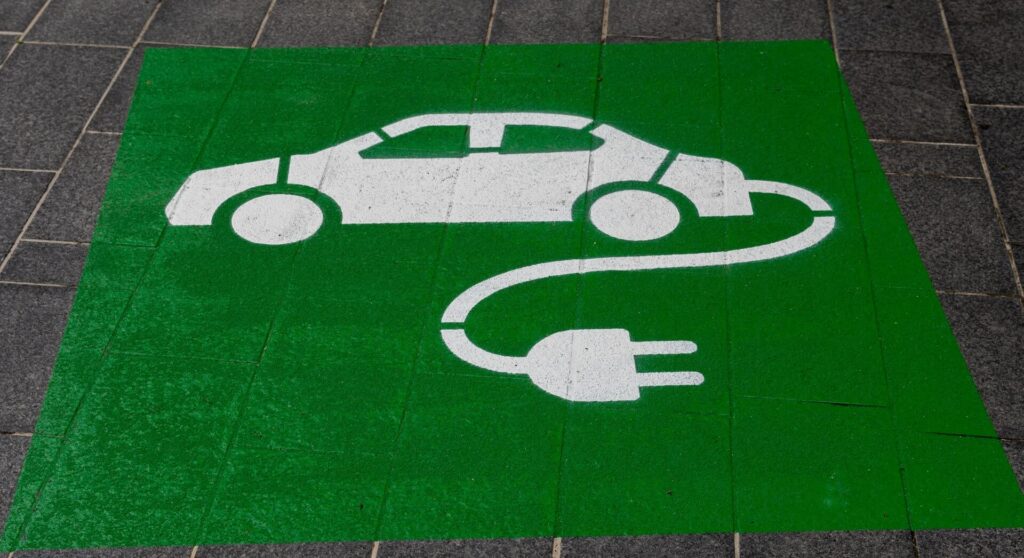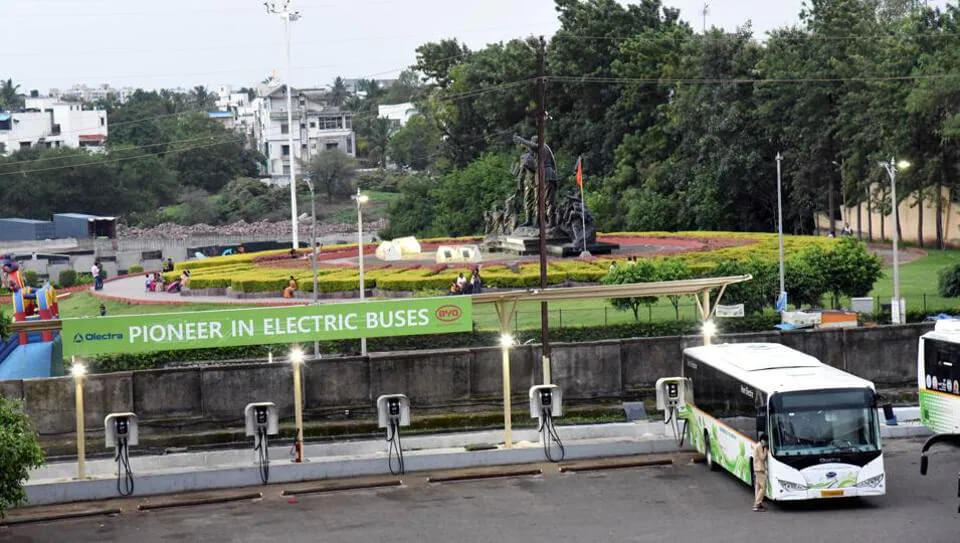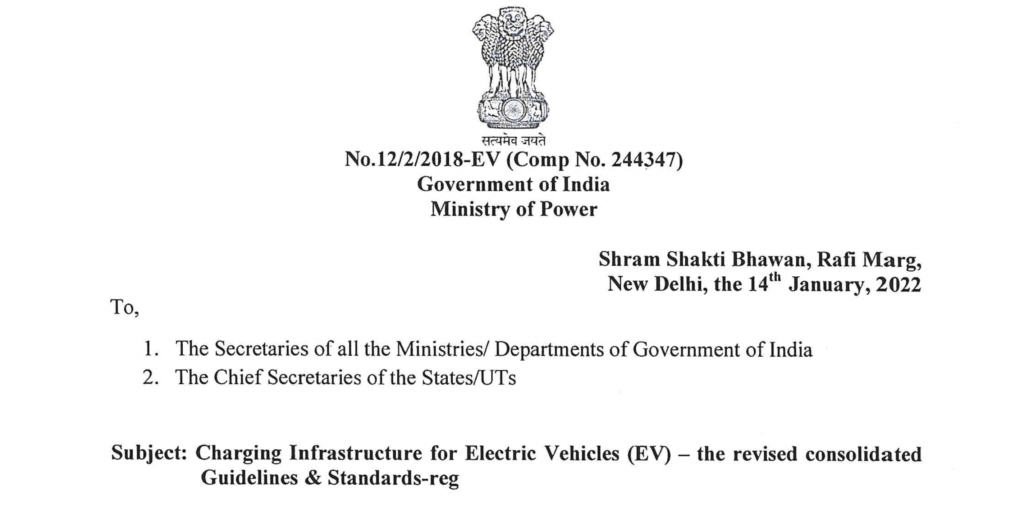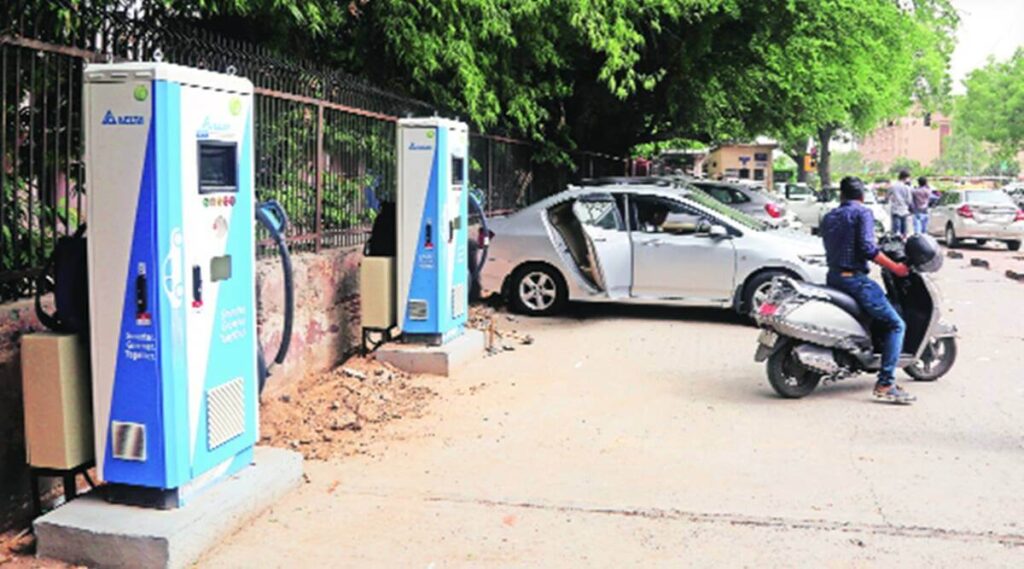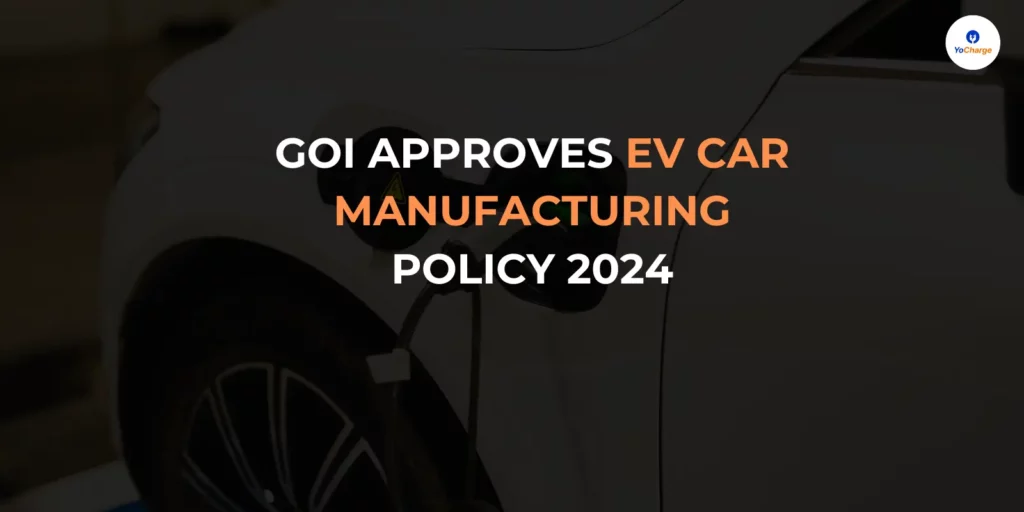
The Indian government has given the green light to an EV Car Manufacturing Policy on 15 MAR 2024. The policy is released by Ministry of Heavy Industries, aiming India as a prime location for manufacturing e-vehicles.
NITI Aayog has projected significant penetration rates for electric vehicles (EVs) in various categories by 2030 in India. Anticipated figures include 35-40% for two-wheelers, 9-11% for private four-wheelers, 20-25% for shared four-wheelers, and 13-16% for buses. These projections highlight the nation’s commitment to transitioning towards cleaner and more sustainable transportation options, with a focus on reducing emissions and enhancing public health.
The EV car manufacturing policy includes that companies establishing manufacturing units for e-vehicles will be permitted to import a limited number of cars at a reduced customs duty. These companies will be required to establish manufacturing facilities in India within 3 years and achieve a localization level of 50% within 5 years.
The Indian government has sanctioned a plan to encourage India as a manufacturing hub for the production of advanced technology e-vehicles. The objective is to attract investments from renowned global EV manufacturers, providing Indian consumers access to cutting-edge technology, supporting the Make in India initiative, and fostering competition among EV players.
This objective leads to increased production, cost efficiency, reduced crude oil imports, lower trade deficit, decreased urban air pollution, and positive impacts on health and the environment.
Key Points Of The EV Car Manufacturing Policy
1. Minimum Investment required: A minimum investment of Rs 4150 Cr (∼USD 500 Mn) is required for the scheme.
2. Maximum Investment: There is no limit on the maximum investment that can be made under this policy.
3. Timeline For Manufacturing: The timeline for setting up manufacturing facilities in India is 3 years. Commercial production of e-vehicles should begin within this time frame, and a 50% domestic value addition (DVA) should be achieved within 5 years at the maximum.
4. Domestic Value Addition (DVA) During Manufacturing: A localization level of 25% by the 3rd year and 50% by the 5th year must be achieved.
5. Customs Duty: A customs duty of 15% (as applicable to CKD units) would be applicable for 5 years.
6. Permissible Vehicle Value: Vehicles with a CIF value of USD 35,000 or above will be permissible under this policy.
7. Total Number Of EVs Allowed For Import: The total number of EVs allowed for import would be determined by the total duty foregone or investment made, whichever is lower, subject to a maximum of ₹6,484 Cr (equal to incentive under PLI scheme). Not more than 8,000 EVs per year would be permissible for import under this scheme, and the carryover of unutilized annual import limits would be permitted.
8. Bank Guarantee: The investment commitment made by the company will have to be backed up by a bank guarantee instead of the custom duty forgone. The bank guarantee will be invoked in case of non-achievement of DVA and minimum investment criteria defined under the scheme guidelines.
Suggested Reads: Centre’s White Paper Reveals Strategies to Accelerate Tech Innovation in E-Mobility Sector[2024]
The Final Words
The Indian government has approved an EV Car Manufacturing Policy aimed at making India a prime location for manufacturing EV passenger cars. The policy allows companies to import a limited number of cars at a reduced customs duty, provided they establish manufacturing facilities in India within 3 years and achieve a localization level of 50% within 5 years.
The EV Car Manufacturing Policy’s objective is to attract investments from global EV manufacturers, increase production, reduce crude oil imports, lower trade deficit, decrease urban air pollution, and have positive impacts on health and the environment.
